VIEWING GUIDE: This document is far from complete, as I have only had time to include a tiny fraction of the photography that I want to show you. Also, I have not had time to add all of the eye-candy and links that I wanted to include at the outset of the project. So, check back half-way through the year for a mid-year update and see, if I cannot surprise you with a whole lot more.
In the meantime, this annual report is concetptually organized both topically and chronologically. The topical organization is provided in the Table of Contents; the chronological organization is given by the order in which the wildflower photography appears on the right side of your browser window. Although these two methods of organization sometimes overlap, it is best to keep them apart as you read along. This does not mean that you cannot enjoy the text and photography together as you read along.
A simple mouse-click or tap on your touchpad over a wildflower photo frame produces a much larger image for your viewing pleasure.
Table of Contents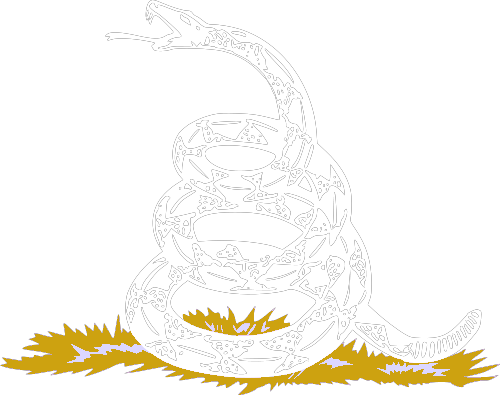
Don't Tread on Me!
- Introduction - Year on Year, 2012 Was a Much Better Start
- Setting the Stage for an Unbelievable Year
- Rebirth of a Patriot
- A Proclamation of Liberty
- Liberty Trek 2012
- A Trial Run at Mt. Rainier
- A Shot Across the Bow
- Is America an Appropriate Name?
- An Incredible Overland Journey Comes to an Abrupt and Unexpected End
- My Arrival in Tampa and the Ron Paul Festival
- The Climax of my 2012 Liberty Trek
- A Great Finish
- My Return to Jeddah
- Vera Pizza, Marhaba, Baskin Robbins, and the Corniche
- The Austrian Business Cycle (ABC)
- IT or Arabic?
- One New Year's Resolution Plus
Although 2011 ended very poorly, 2012 got off to a great start. Not only was I able to remain in Jeddah, Saudi Arabia, but I was able to stay with my same employer. This meant that I could keep my newly acquired residence and would be able to complete my half-finished kitchen. Further, I would not be subjected to the enormous time and cost burdens of having to find a new residence and new employment in still another distant land.
Moreover, I would receive my same salary, my work load would be significantly less, and I would enjoy greater freedom in the classroom. Then too, my new boss appeared very accommodating and happy to have me on board. Best of all, I would finally be free from the military-like regimentation of the ELI's foundation year program. Indeed, I was one very happy lad.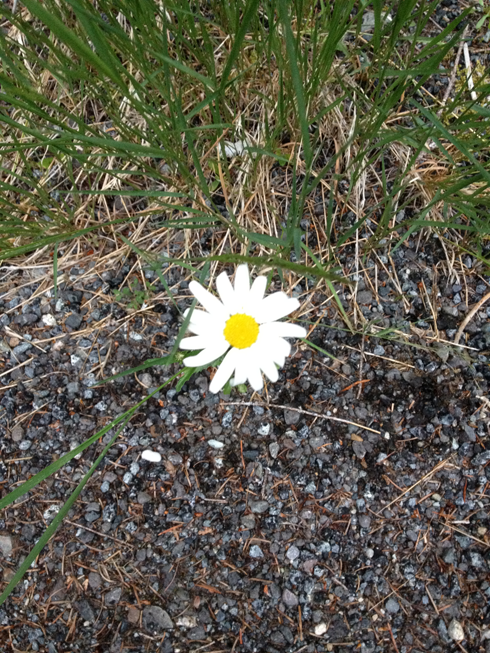
Securing this very successful transition had not been easy. Practically conceived, it took three interviews with the head of the Department of European Languages and Literatures, one interview with the acting dean of the Faculty of Arts and Humanities, two interviews with his new replacement, consultation with two of my former colleagues, and two interviews with the university's vice president of academic affairs. In all of these meetings never once did I appeal for a second chance or beg for mercy in view of my pending expected hardship. Rather, I told what I believed to be my real merit and explained what I believed to have truly happened. I had few good words for the ELI's management team.
In the end, my new boss told me to prove my old boss wrong, and I did.
By the end of the spring term I had no trouble obtaining my exit and reentry visas. Indeed, I had received a green light from both the chair of my new department and the dean of my new faculty. My hard fought battle had been won. This said, my wounds were deep. A third consecutive holiday season had been dashed, my future was by no means certain. On top of everything else I had lost important credibility with the contractor responsible for building my half-completed kitchen.
I held my ground and was pleasantly surprised when the manager of Al Haidiri came to visit my completed kitchen in late April. Imagine, they build kitchens for Saudi princes!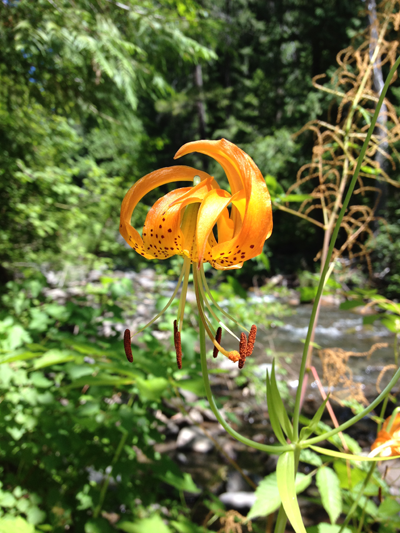
So, I baked myself a four-month belated birthday cake -- probably the first such cake in more than two decades. Something was going on in my life that I could not quite explain. Was I growing younger? I even left the gym under the stadium and headed to the track where I would no longer have to depend on the temporal whims of another negligent management team. Too often was the gym closed when I needed it most. The last time that I can recall having run on a track was while I was still living in Yokohama some 18 years prior. Little did I know that this action would pave the way for my first paid vacation in decades. The tone for the rest of the year had been firmly set, and I did not hesitate to make good on it.
Back in 2007 I had learned about US Congressman Ron Paul for the first time and had watched a video presentation of him recommended to me by my good friend, Sadykh Sadykhof. I concluded that Ron Paul was "an eccentric idealist with a quirky personality advocating undergraduate textbook solutions to real world problems". I noted to my friend that Ron Paul was from Texas and told him to vote for Barack Hussein Obama. Well, my candidate won in 2007, but it was now 2012, and America was still losing. Fortunately, the 2012 presidential election was just around the corner, and there was room for real hope -- not the audacious kind once advertised by our current president.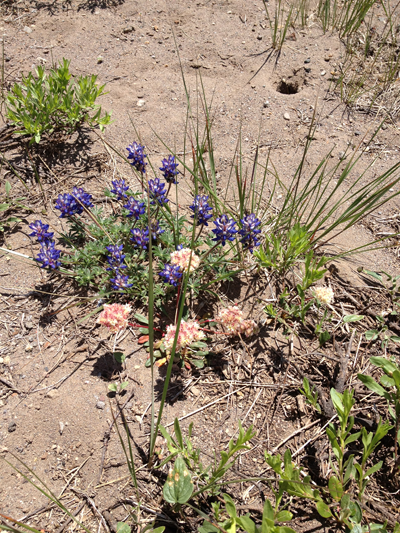
Single-payer health care failed to get through Congress, the war in Afghanistan was escalated, and NATO jet-fighters were bombing Libya. Armed drones had assassinated Arab journalists in Iraq and American citizens were being targeted in Yemen from control rooms in the American Southwest. Bradley Manning was made to stand nude in front of his prison door, and Julian Assange, an Australian citizen, had found refuge in the Ecuadoran Embassy in London to escape extradition to the US to stand trial for crimes that he did not commit. It was even reported that American troops were teaming up with the LAPD to police the streets of Los Angeles. The Patriot Act, FISA, and NDAA had all passed through Congress for either their first or second time, and another attempt to pass SOPA was likely on the horizon. My homeland -- already the world's largest debtor nation before Obama entered office -- sat and watched as US Treasury Notes were downgraded by a credit rating agency for the first time since I can remember. The infamous Guantanamo prison created under George W. Bush remained open, and Gaza was still under siege.
On top of these numerous dubious honors my homeland continued to boast the highest incarceration rate among the OECD countries, while our nation's banksters roamed freely on our streets and in the air overhead. Even tiny Iceland had done better, for it had either jailed or banished those who nearly ruined the Icelandic economy. Unemployment remained high in the US, 47% of all American citizens were now dependent on some form of federal or state transfer payment, and I was still an economic refugee living in a distant land in a rather successful effort to avoid becoming one of the 47%.
Finally, Keynesian macroeconomic policy continued to reign in Washington, and a sudden collapse of the American empire remained imminent.
Still prominent in my mind was a comment made by my Russian-American friend just before my departure for Seoul, South Korea, in the summer of 2009. He stated, "The great American experiment is over".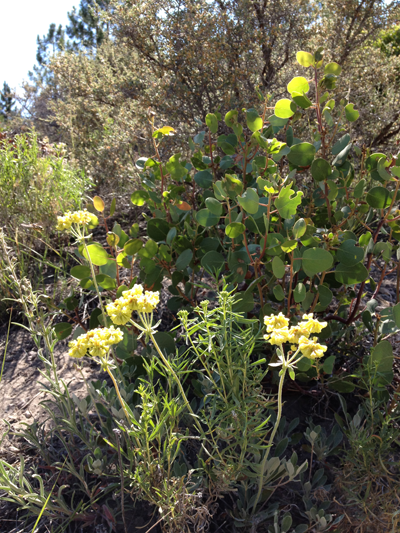
Now, you might find these words dramatic, pathetic, or even cynical, but they were coming from a Russian immigrant who had fled Kazakhastan when the Soviet Union collapsed and was now residing in the United States as a naturalized American citizen. He and his wife, like so many immigrants before them, had come to the US in search of economic opportunity and political freedom. Although Sadykh and I are both economic refugees of sorts, he now has a job working for the State of Washington, while I am unable to find suitable employment in my country of birth.
His comment was no cheap shot; rather, it was a heartfelt expression of his own disappointment in having sought refuge and citizenship in America. Political experience is not his short-coming.
Revolution was in the air, and being the political animal that I am I could not help but take a serious interest in it. The Arab Spring had already captured my attention in the previous year, but there was something much bigger afoot, and I wanted to know what it was all about.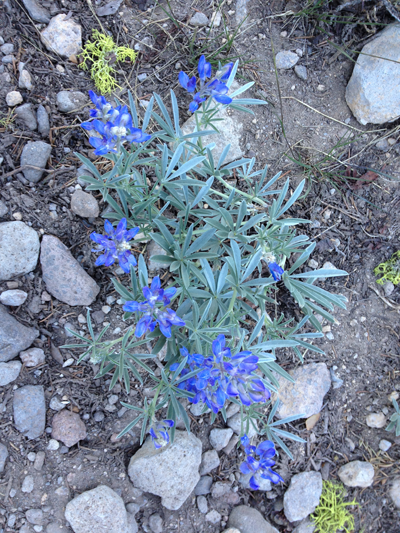
In the United States there was the Tea Party that was quickly absorbed by the Republican Party and delivered the Democratic Party a well-deserved slap across the face in the 2010 midterm elections. Then there was the Occupy Movement that strove to do in New York City what the Egyptians had achieved in Tahrir Square, Cairo. Although ignominiously evicted, the Occupy Movement had spread to nearly every major US city and was still in tact in Seattle when I arrived in the US in the summer. Proudly I marched with the Occupiers on the city's 4th Precinct police station in an effort to find out more about the movement. There was also another, somewhat different movement that was both growing and closely aligned with my still recent discovery of the Austrian business cycle (ABC); it was the Ron Paul Revolution. I was already committed to the movement before I arrived, but wanted to know why it had not faired better during the primary election cycle.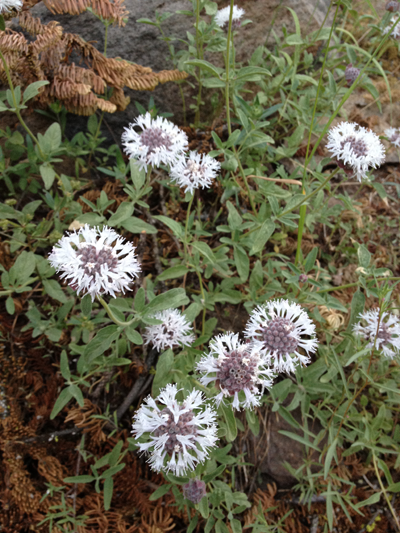
Long before my journey to the United States I became interested in the Ron Paul Movement. I really liked the idea of a 76-year old man talking to our nation's youth and their actually listening. Several million-dollar money bombs raised from grassroots donations were also important evidence that youth were not the only ones interested. This was surely a movement that had the long term fate of my nation in sight and not something that I could easily ignore. So, I wrote a letter and sent it as an email attachment to John Tate, Ron Paul's campaign manager in Texas, and volunteered to help. There was no response. I followed up with a fax and a copy of my resumé. Still no answer.
Well, I am nobody's sychophant and undeterred devised a new strategy for satisfying my urge to participate in what appeared to be the greatest thing going in American politics since I promoted Barry Goldwater in a mock high school election in 1967.
Liberty is not something that we can realize by wearing it on our t-shirt, waving it on July 4th, or watching it on television while politicians demonize the leadership of other nations, send our young men and women overseas to fight in wars for profit, and proclaim that we are the world's freest nation. Rather, it is something that we must believe in and struggle for every day -- both individually and together -- in our homes, in the work place, at school, on the street corner, on the net, and before our local magistrate.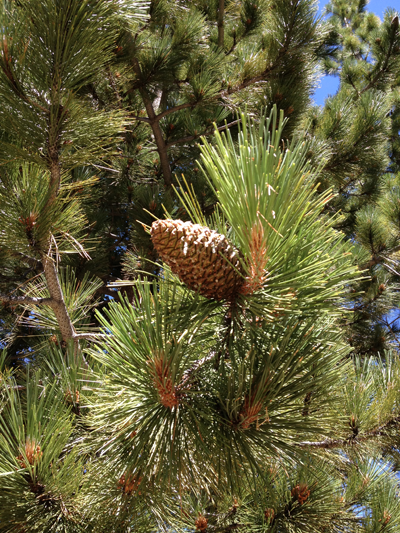
Each of us is born with a free spirit and unbounded curiosity. For without these we would never be able to learn as quickly as we do. This said, our freedom is by no means guaranteed and can be easily denied us as we are growing up. We have only to be repeatedly punished for challenging the status quo, and our dependency is assured. Indeed, whereas some of us are trained to cultivate and appreciate our freedom, others are taught to suppress and subject it to the will of others including our parents, our teachers, our government, and our friends.
Still, our personal freedoms and our political liberties are not one. True freedom is the ability to manuever flexibly and innovatively within the narrow confines of the conceptual and physical reality that binds us individually. Put me in a box, and I can still claim my freedom. It is something that is felt internally, and is usually expressed outwardly with an aura of self-confidence. Political liberty is quite different, for it depends on a shared set of values about the role of government and the individual in society and how these work together and separately to achieve the best possible outcome.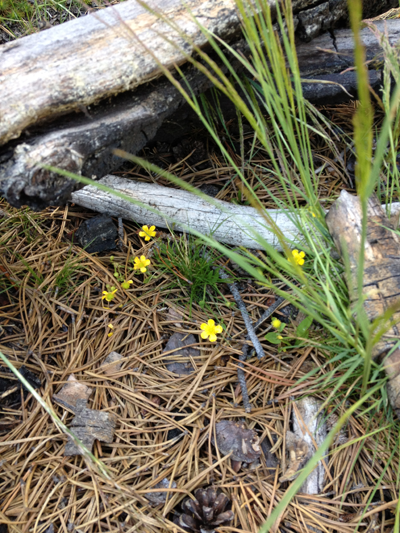
America was founded on the belief that government cannot be trusted, and that, if left to itself, it will usurp the individual's ability to pursue his own happiness or even misery, if he is so inclined. In time we have wandered grievously far from this original idea. Not only does our federal government repeatedly interfere in our personal alives in ways that were never intended, but it taxes the very source of our livelihood. Many of us have awakened to this fact and are deeply concerned; many others -- the majority, in fact -- cannot perceive that anything is amiss. These latter are the product of a gradual, debilitating, and surrepitious societal adjustment to ever increasing corruption in the highest echelons of our government and society as a whole. We let our success go to our head and let our guard down as a result.
Today, many of us are so distraught that we are demanding a new Constitution. Others of us are insisting that there is nothing wrong with the old, and fear that things could become much worse, if those currently in power had the opportunity to draft a new document. Whichever the case, it is clear that our national leadership only listens to our voice so that it can better manipulate our opinion and thereby conceal its own foul play. In effect, rather than serving us, the citizens, our government now serves itself and special interests who support and benefit from it. 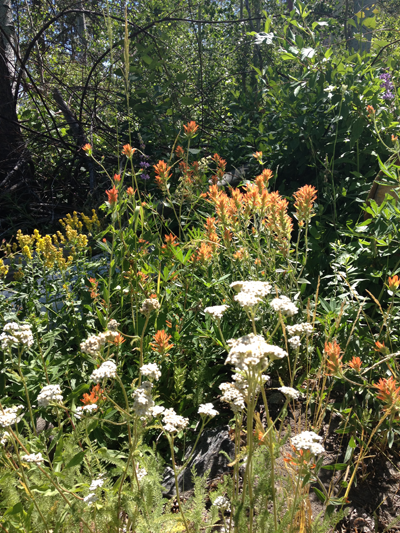
Now, I could simply walk away from this grand "failed experiment" and emmigrate to a country that better understands how to run a socialist state, or I can take a stand, renew my patriotic allegiance, renounce socialism for what it is -- the antithesis of freedom --, and seek to restore a tradition that views the state as a limited source of good and unbounded evil.
As the United States have become a veritable world empire, and as humanity appears desparately wed to the notion of national allegiance, answering the patriotic call to duty to which I feel myself summoned is a very attractive option. There is a double reward: on the one hand, I do not have to start all over; on the other hand, any good that I can achieve within the United States is likely to have broad ramifications for the rest of humanity.
The world once admired the United States as a beacon of freedom, today these states are viewed as an imperial force that is praised by the ruse and cowardly, and resented by the just and courageous. Alas, I have decided to renew my patriotic allegiance and join hands with the just and courageous no matter where they might be found in the world, but especially in my native land. For, these latter are the true American patriots among whom I am proud to belong. In the final analysis apolitical behavior is a vote for the status quo, and I find the behavior of the current global establishment and the American government despicable.
Does this make me a rebel, as many are ready to claim? I think not. Indeed, I, like many others, am merely seeking to retain what is rightfully mine and where appropriate take back what has been stolen from me. While many of us sit idly and watch our central governments and international corporations rape humanity and our local environments in the name of political freedom, global prosperity, and geopolitical stability, I and many others have decided to speak out, stand up, and challenge their allegiance, not to our governments and the establishment from they seek and find protection, but to our nations, our peoples, and humanity as a whole.
So, I set off on a journey that would take me literally around the globe. My first stop was in Bangkok where I met up with my good friend Bernd Becker. Together we shared a dinner at a German restaurant in downtown Bangkok with his girlfriend, and on the following day we visited the ancient ruins of Ayutthaya. I then flew to Tōkyō, and between flights paid off a tiny debt that was blocking my Japanese website with the help of a sympathetic Japanese currrency exchange manager at Narita Airport. From there I sailed across the midnight sky to San Francisco where I attended my second conference of the Western Economics Association International (WEAI) and delivered a slide presentation that introduced my recently completed paper entitled "Money Creation and the Revolution". Though the conference was in San Francisco I stayed at the French Hotel in Berkeley where I met with my old friend, Kenneth Smythe, and several acquaintenances. I even dove a little from the one-meter board at the King Pool. 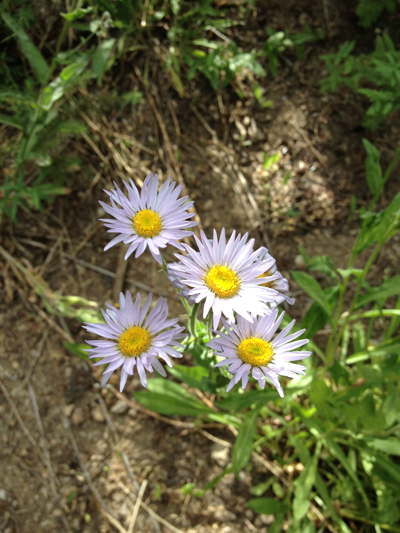
On July 3rd I boarded another plane and flew to Seattle where I stayed with my good friend Sadykh Sadykhof and his family in Renton while I prepared for what would become my first liberty trek across the continental United States. After purchasing a used 2007 Liberty Jeep and filling it up with new camping gear I drove my vehicle up to Seattle. There I stayed at the Panama Hotel in the International District, ate dim sum, had my eyes examined, ordered some reading material at the UW Bookstore, and visited with a former college buddy named Greg Rusch. After several days I tucked in my shirt, tightened my belt, took a deep breath, and set out alone to Mt. Rainier for a trial run before my final departure.
The first important discovery of my trial run was that my mobile GPS system and my telephone were not the geographically universal tools that I had imagined, and that I should quickly rid myself of the notion of navigating across rural America without hand-held maps. My second important discovery was that I would not be sending photos to my friends from the top of the continental United States, as I had originally planned. My final important discovery was that it was unwise to rely on my car battery to power my computer and mobile phone. Then too, I rediscovered that large trees were immobile objects into which one should not back one's vehicle and expect them to yield. Indeed, my broken tail light proved witness to this inexorable fact.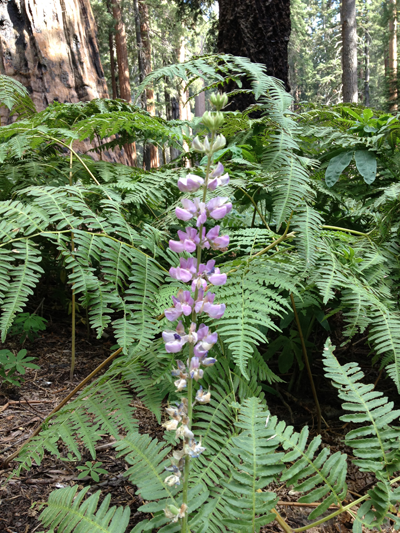
Despite these several disappointments and single navigational mishap, I was largely encouraged by my inititial foray into America's oxymoronic, highly developed wilderness and returned to Seattle with a shopping list of still needed camping equipment. By this time I also discovered that my Saudi bank account was still frozen (see below), and that I would maybe have to terminate my journey early for lack of financial liquidity. I was very concerned.
In addition, this trial run proved sufficient time for "Sound" Ford in Renton to receive a replacement for the cracked windshield that it sold me and for the UW bookstore to obtain a copy of Thomas Wood's New York Times best selling work The Politically Incorrect Guide to American History. That the bookstore was unable to obtain for me in a timely manner a copy of Ronald O'Brien's Springboard and Platform Diving was understandable and probably fortunate, because it meant that I would have less to carry on the plane when my trip was over. What is more, my only inclination toward diving during my entire 41-day overland trek was the temptation to plunge to my death while ascending the Observation Point Trail in Zion National Park, Utah. Obviously, I resisted. Nevertheless, trying to obtain a copy of O'Brien's book in Jeddah after my return has proven difficult.
Illiquidity can occur in many forms. It is most easily understood as the inability of a company, government, individual, or other economic agent to convert his tangible or intangible assets into readily usable cash on demand. It can lead to loan default, bankruptcy, institutional collapse, hunger, or worse. In my case it led to an ever growing frustration as I made my way south from the State of Washington into and across Northern and Central California.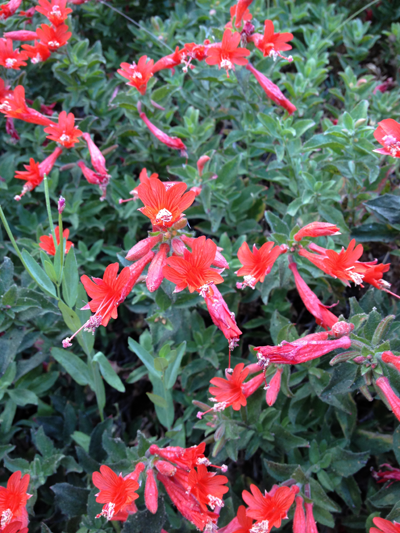
Shortly before my departure from Jeddah I noticed in an ATM window that my bank was requesting my appearance to resolve a matter whose need I did not understand. As I was still able to withdraw cash and was very busy with the final preparation of the first leg of my scheduled journey, I simply ignored the message. Shortly after my arrival in Berkeley, California two weeks later, I discovered that I was no longer able to access my account. So, I called the number on the back of my card and was told: one, that my account had been frozen; and two, that I would have to contact my local branch in Jeddah. I thanked Riyadh and hung up. I then scurried to the internet in search of contact information for my bank, and was elated when I found both telephone and facsimile numbers. Unfortunately, the fax number failed and the telephone number led to an Arabic menu that I could not understand sufficiently well to know which buttons to press. When I tried to call Riyadh for a second time I discovered that my call had been placed on automatic disconnect. I became deeply concerned.
By the time I was able to write a brief letter I was already in Seattle. In the letter I explained that I was in the United States on vacation, had learned that my account was frozen, and would be in need of cash in the near future. I then requested that the bank unfreeze my account at the earliest possible time. After turning the letter into a PDF document I attached a copy of my passport and both sides of my Saudi identification card. These I passed onto my good friend Sadykh and asked him to keep trying the same numbers while I was atop Mt. Rainier on my trial run. This he did, but to no avail. In anticipation of his failure I also sent an email with a copy of the completed document to my friend Mohammed in Jeddah and asked him to find out why my account had been frozen and what would be necessary to unfreeze it. For the next several weeks I grew increasingly worried that my journey across the US would come to an abrupt end.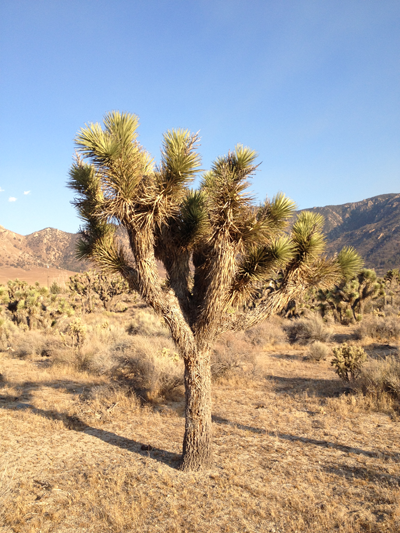
As the ice in my cooler never lasted more than three days, and sometimes only two, the availability of ice eventually set the rhythm between campsites for the entire journey. This meant that each time I would leave the wilderness I would look for an ATM machine that would accept my Samba Bank card only to discover that my account was still frozen. During the 19-day period from Seattle, Washington to Truckee, California I was met with the unfortunate news that my account was still frozen on six different occasions. By the time I had reached Lake Tahoe National Forest I had become a both welcome and unwelcome free-loader on a State of California administered camp ground and barely had enough gas in my tank to make it to a Truckee ATM machine where I finally received my first cash payment. I was one very happy camper.
My financial trauma was still not over, though. According to my good friend, Mohammed Jedaan, Samba Bank had only agreed to a three-day window during which they would allow me to withdraw cash. This was untenable, as I was not carrying a gun and had no way to protect a large stash of cash against possible theft. What is worse, all of the banks where I attempted to withdraw cash limited the amount that I could withdraw. It took still another week until my friend finally convinced my Saudi bank to unfreeze my account until I returned.
Little did I know that my financial difficulties would haunt me all the way to Tampa.
In 2007, somewhat after my mother passed away, my share of my parents' estate was finally received. Although a modest sum, it required a place for safe-keeping. As much had transpired in the United States during my more than 16-year overseas sojourn in Japan and Hong Kong, I no longer had an American credit history and had no idea where I should open a new bank account. As I was currently resident in Seattle's international district, I wanted a bank that was within easy reach. Moreover, I did not know how long I would be living in Seattle, and I was ready to move anywhere where I could find new employment in the United States. In a somewhat patriotic act I selected Bank of America with the thought that I would be covered in all fifty states. Well, it was now 2012, and I was seeking to make good on my original plan.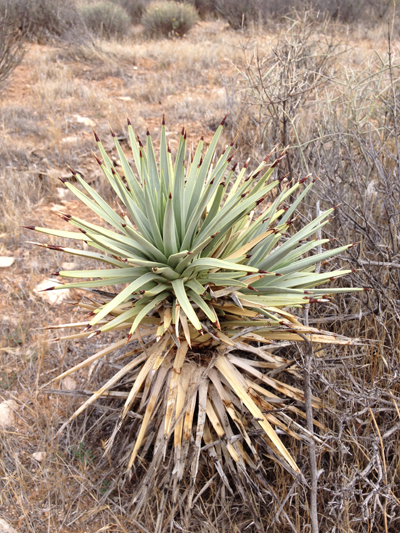
Yes, I was well aware of Bank of America's participation in the 2008 Financial Crisis, and I had certainly read about the mass migration of Bank of America's clientele away from the bank. Surely, if I had been living in the United States when this movement began, I would have left the bank as well. This said, I was once again resident overseas, had only an occasional need for an American bank account, was not sure that I could open a new account without being resident in the United States, and required a large commercial bank to accept overseas transfers. Had I erred in my decision?
Not only did Bank of America not have any branches in the states of Wyoming, Montana, South Dakota, and Nebraska, but no ATM machine would honor either my Bank of America or SAMBA debit cards until I arrived in Nebraska. Alas, my Bank of America credit card was nearly exhausted and for all practical purposes my SAMBA bank account was was frozen again.
Had the United States not entered the Age of Information while I was away? Indeed, I was able to obtain better banking service in Thailand. No need to worry about such philosophical questions, though; a more tangible disaster was just around the corner.
Ogallala is a small, historically important, Nebraska town located somewhat close to the Colorada border. It is currently the residence of my 2007 Liberty Jeep. Ogallala also marks the terminal point of my cross-country trek from Mt. Rainier, State of Washington to Lake McConnaughy, Nebraska. My planned overland journey to Tampa, Florida was completed by shuttle bus and passenger jet.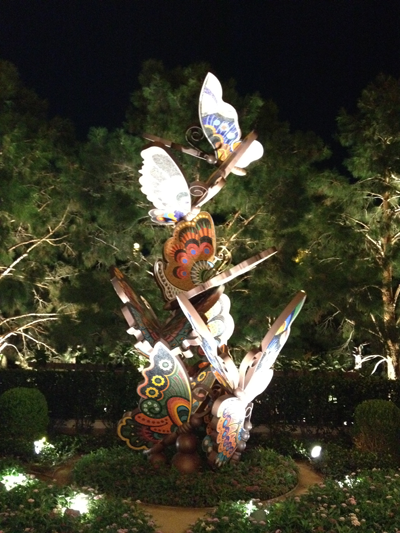
As it was clear that I would not reach my intended destination before nightfall, and as I had grown weary of the idea of seeking out a campsite under the cover of darkness in unknown wilderness neighborhoods, I decided to pitch my tent along the shores of Lake McConaughy. It was the first lake along my entire journey where one could both drive a vehicle and pitch a tent along the beach. Unfortunately, I never made it to the beach on four wheels, and by nightfall I had still not pitched my tent. Indeed, I found myself stuck in many inches of soft, powdery sand and doing everything I could to free my vehicle.
What for some is obviously a recreational paradise in the middle of America's dry, vast, Central Plain became for me a bitter-sweet and very abrupt end to a very successful cross-country camping trip.
Although I was eventually able to free my vehicle with the help of four local youth and a four-wheel drive pick-up truck that belonged to one of the boy's fathers, I was unable to escape my plight. For, in my effort to rock myself to freedom i had unwittingly destroyed my clutch and part of my transmission. My ongoing liquidity problem was far from over, as I was told two days later that it would cost me over USD1,000 to repair the damage. Alas, I would not be able to sell my car in Tampa as planned and still be able to participate in the Ron Paul Festival and Rally.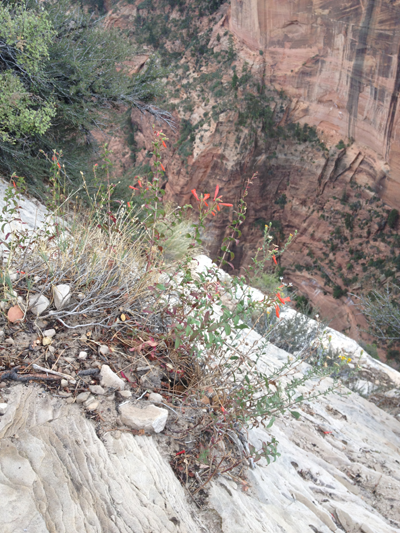
As I had arrived on Saturday evening, there would be no one available to toe my truck to a nearby Jeep dealership in Ogallala until Monday morning. So, I spent a very enjoyable Sunday morning and afternoon strolling the Arthur Bay beach and swimming in the cool, clear water of Lake McConaughy. That night I built the final campfire of my journey on the beach and waited until the last flame had flickered out. By Monday afternoon, August 20th, I learned that a minimum of two days would be required before the necessary parts could arrive. As the Ron Paul Festival was slated to begin on August 24th, I surrendered my car as collateral for the repairs, boarded a shuttle bus that was eventually filled with paroled convicts from a Colorado state penitentiary, and rode to Denver where I boarded a plane to Tampa. Next to the lively and not so lively discussion in the shuttle bus, my westward journey to Denver was highlighted by my first sighting of a prairie dog.
It was dark when I reached my lodgings on the perimeter of Busch Gardens in Tampa. I was new to the area and told not to wander the streets at night. So, I decided to forego dinner and caught up on my journal and many unattended photographs. As I could not sleep, I ordered a to-your-door pizza recommended by the desk clerk and went to bed. I awoke with an extreme case of diarrhea -- nearly as bad as what I had once suffered while still living in Hong Kong many years prior. So, I skipped breakfast and spent the entire morning pool-side reading End the FED by Ron Paul.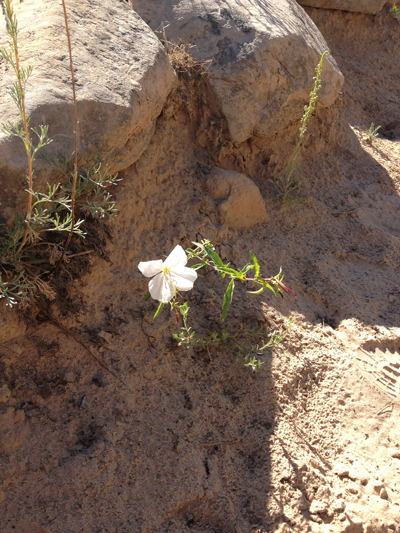
Later that day I found my way to the fairgrounds where the Ron Paul Festival was suppose to begin, but was greatly dissappointed by the poor turn-out. Fortunately, I was able to meet a significant number of dedicated and interesting people. Unfortunately, the experience was not enough to lure me back, because I woke up feeling very ill on the following morning. Indeed, I was so sick that a second opportunity to present my WEAI slide-show did not even register as a possibility until after I was on the plane back to Jeddah. So, I rested as much as possible in preparation for the Ron Paul Rally at the Sun Dome on Sunday. Then too, I was nearly broke and concerned that I would be unable to cover the cost of the shuttle bus back to the airport for my return flight.
My plan had been to sell my newly purchased vehicle upon my arrival in Tampa and fill my relatively empty suitcases with newly purchased clothing. This was obviously no longer possible. On the bright side I had plenty of room for my expensive, light-weight camping gear and was able to avoid paying excess baggage fees that I would not otherwise have been able to afford.
The Ron Paul rally, appropriately labeled the We Are the Future Rally, was a smashing success that provided a very gratifying end to my long journey across the continental United States. Certainly the event removed all of my misgivings with regard to the poor turn out at the Ron Paul Festival only two days before.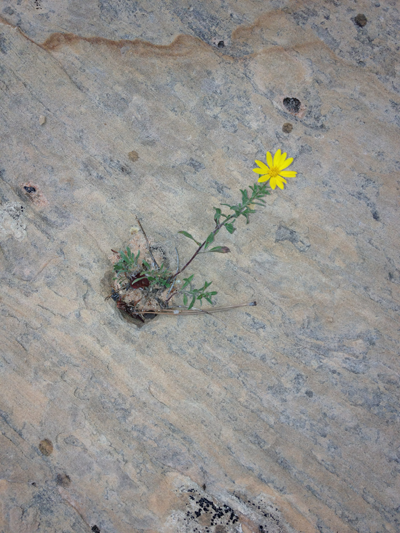
The vast majority of those in attendance were from the State of Florida, but the license plates of variously decorated cars parked in the Sun Dome parking lot showed that people from all over the United States had come to pay honor to Ron Paul and celebrate the restoration of individual liberty, sound money, the US Constitution, and our nation's once greatly heralded republic. Although an important tribute to Ron Paul the more important purpose of the event in my view was to rally the natioal delegates who would soon be attending the Republican National Convention.
Never had I seen or heard Ron Paul speak so freely and openly. In his speech not only did he touch on all of the important issues that I had heard so many times before, but he also spoke of the despicable fate of Bradley Manning and our nation's shameless cover-up of the 9/11 tragedy. When I finally shared in the chant "End the FED!", I knew that I was where I belonged. Still my voice was very weak from my infection, but I no longer cared.
When the nearly six-hour event was finally over, and everyone, but me it seemed, was returning to their car, I met two graduate students. The one was explaining to the other how properly written object-oriented programming (OOP) code was similar to federalism and the US Constitution. It made me laugh, because the parallel was both contemporary and unmistakably correct. Everyone was ecstatic, and we sincerely felt that the future was ours.
The long, uninspiring walk back from the Sun Dome to Busch Gardens reminded me that I was reaching the end of my journey.
While waiting for my plane to depart I discovered Kyle Pierce, a Ron Paul supporter less than 1/3 my age. He had also attended the We Are the Future Rally on the previous day. So, we asked for adjacent seats on the plane and spent the entire journey from Tampa to Chicago speaking about Ron Paul, the Ron Paul Revolution, the future of America, and each other. Amazingly, no one asked us to be quiet, and no one intervened in our discussion. When it was time for us to depart, I asked, if he would allow me to photograph him with his sign. He consented. (Click on his name!)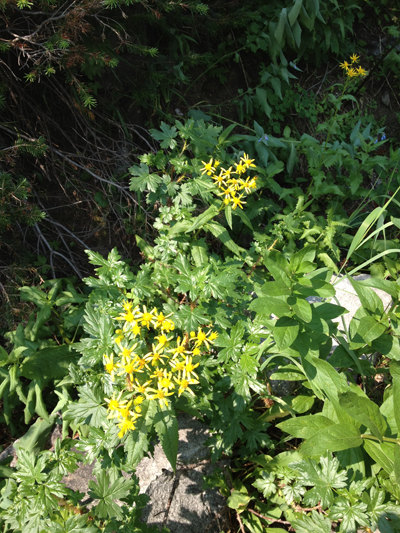
My good friend, Sadykh, was wrong. The American experiment has neither failed, nor is it over; simply we have been climbing the wrong path for so long that many of us have lost sight of our founding fathers' intended destination. Fortunately, there are many like Kyle Pierce who understand where and how we went wrong, and our number is growing!
As I was compelled to change planes in Abu Dhabi, I spent my last remaining dollars on a gift for my friend Hazim Al-Ghamdi who was kind enough to pick me up at the airport in the wee hours of the morning! Before we parted at my residence I asked for a small, but for him significant loan until my first pay check of the new academic year. My financial troubles were far from over.
Not only was my 2007 Liberty Jeep still unsold in Ogallala, but my Jeddah landlord was now demanding six months rent or termination of our contract. As my rent had fallen due while I was still in the United States, it was reasonable for him to be angry. Still there appeared to be no way to satiate his anger short of full and immediate payment. Alas, I was receiving, on average, four text messages per day, despite my every assurance that he would be paid on the receipt of my first pay check of the new academic year.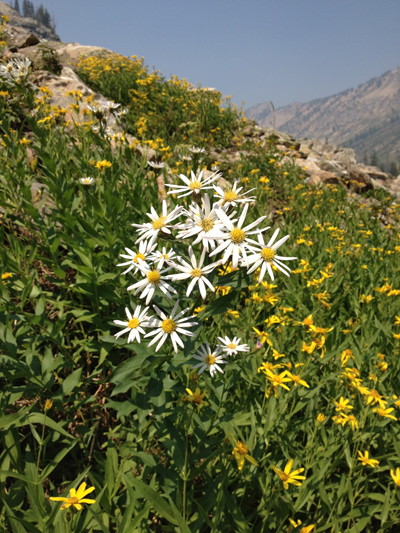
Had I had a history of late payments? No. Was I bad neighbor to the other tenants? No. Did I ever ask for anything that I was not already promised? No. Had I not been dutifully polite, whenever I informed him that he was unilaterally dictating the terms of our contract? Yes. He finally relented when I began to inquire about why he was so desparately in need of my rent, and whether he believed that the Saudi King had erred in selecting me to serve his subjects.
Under normal conditions one is permitted to pay on a monthly basis, but to mitigate my landlord's petulant demands I sacrificed my entire first pay check on his behalf and borrowed additionally from my friends and colleagues until my second paycheck! On the bright side Marsana Rent-a-Car permitted me to spend the first month of my return without payment, and school got off to a really great start!
Saudi students are not the most studious that I have taught, but they are generally very likeable and attentive. So, I provided them with my best effort and was largely rewarded as a result. On my birthday I treated one of my sections to a meal at Vera Pizza, and they in turn treated to me a birthday cake and coffee at Marhaba. This set the ball moving. After one of the four final examinations that I administered, I went with another section to a local restaurant for kabsa, a favorite Saudi food, and received instructions on how to eat rice with my fingers. Lastly, to celebrate the end of the term I went out with still another another group of students for more pizza at Vera's, ice cream at Baskin Robbins, and a game of Belotte, a favorite Saudi card game, on the Corniche. It surely did little to help me lose weight, but my partner, Ahmed, and I nearly defeated our opponents. In the end we settled for a draw, when both sides were discovered cheating, and those unable to play wanted to do something else. I returned home somewhat before the morning prayer -- sometime around 5:15 AM!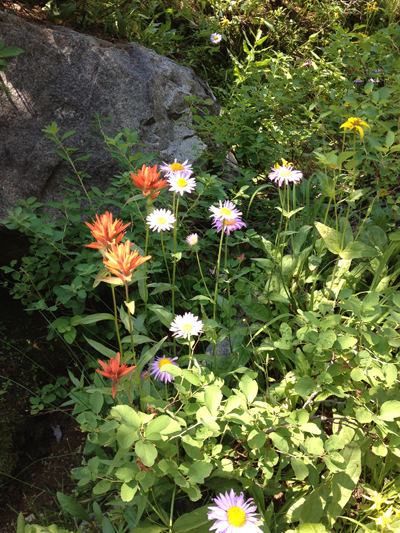
My new schedule for the spring term was hardly what I wanted, but I am relatively confident that I will survive. An anonymous survey that I administered at the end of each final examination indicates that I am well-liked by a majority of my students. More importantly, they provided some very frank answers and aired well their unspoken grievances. I was delighted by their response. Some adjustment on my part will likely lead to an even better term this coming year.
My success at the Western Economics Association International (WEAI) Conference inspired me to design still another Keynote presentation that I will present at the Islamic Economics Institute (ISI) at King Abdullah University (KAU) in mid-April, and to write a paper for presentation at the WEAI Conference on the Mita campus of Keiō Univeristy in Tōkyō in mid-March.
The Keynote presentation is largely based on the work of Roger W. Garrison who is active at Auburn University in Auburn, Alabama. A copy of it was sent to Jesús Huerta de Soto at King Juan Carlos University in Madrid, Spain where it received a thumbs up and will be made available to undergraduate students as a primer. Neither did it take Abdullah Turkistani, Director, Islamic Economics Institute long to approve my proposal, as the model can be introduced and understood without reference to the creation, issue, or use of money other than that necessary to perform simple exchanges of goods and services. The idea of making money from money is repugnant to the Islamic faith, and as far as I can discern, the Muslims have important insight in this regard.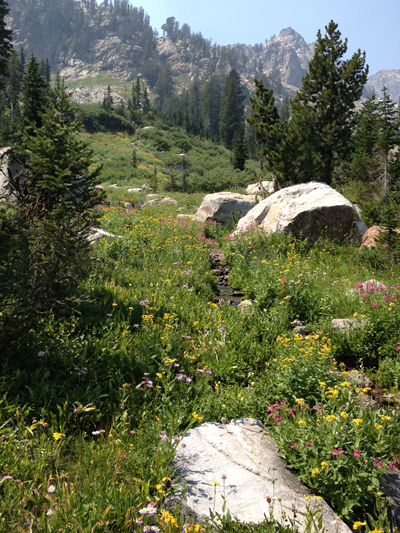
My discovery is neither new, nor original, for the idea has been around since the work of Ludwig von Mises and his diligent student, the Nobel Prize winning theorist, Friedrich August Hayek. I first disovered the idea on the internet in a video recommended by a Facebook friend named Matt Malesky. It was a PowerPoint presentation by Roger W. Garrison that explained how boom and bust cycles are created, and why Keynesian macroeconomic theory is inappropriate in their mitigation. This was not monetarist theory proposed by Milton Friedman, and I wondered why no one had taught me this while I was in attendance at three different graduate schools in economics in the United States. As there was one aspect of the presentation that was completely new to me, I decided to delve further and obtained a copy of Garrison's book entitled Time and Money: The Macroeconomics of Capital Structure. A then very laborious read through a translated copy of Jesús Huerta de Soto's book entitled Money, Bank Credit, and the Economic Cycles made me feel confident that I was truly on to something. Just to be sure, I read one more book -- The Ethics of Money Production by Jörg Guido Hülsmann. I then paused to give everything a chance to settle and suddenly a paper popped out. I called it "Money Creation and the Revolution". When I learned that the WEAI Convention would be meeting in San Francisco in late June and early July of 2012, I seized the occasion to introduce my paper to a live audience (see above). This presentation kick-started my 2012 Liberty Trek on which I would embark ten or so days later.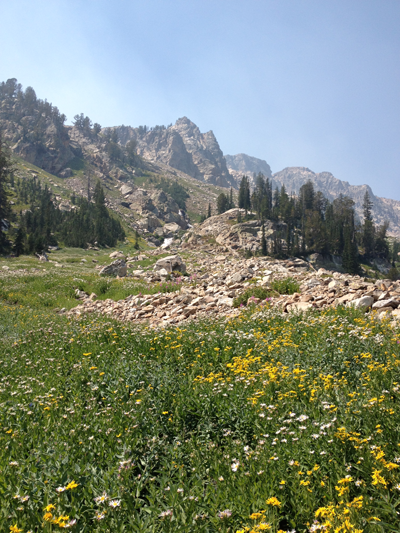
Further investigation, both before and after my departure for the United States, led me to famed American libertarian authors such as Murray N. Rothbard (Austrian economist), Thomas E. Woods, Jr. (historian), and even Ron Paul (politician).
These authors placed a distinct American mark on my previous study and peaked my interest in American history and the formation and development of the United States -- my homeland. Although I am now labeled a Libertarian by many a social networker and am constantly reminded by these same people of my foreign residence, few of them appear to have much knowledge of me, money, economics, and other languages and cultures. Indeed, knowledge of their own national history is often distorted, lacking in factual content, or simply propaganda produced by the government and our national media. Even scarier than their apparent ignorance or foolishness is that many of these individuals contribute directly and deliberately to the maintenance of the status quo. They are political groupies who fly their party banner, chant its slogans, and denounce anything and everything that could cause them to think otherwise -- cognitive dissonance par excellence. America has lost its way, and they show little interest in finding our way back. What is worse, they take pride in the vanity and tragedy of empire and sing praise to historical mantras that have been systematically stripped of all substance by the establishment that they support. They are a distractive, cowardly, and condescending lot who hide behind the aprons of the established order to justify their wrongful claims and veninmous rhetoric. Not only do they threaten the future of their own nation, but the lives of many others who are touched by the misguided intentions of their corrupt government.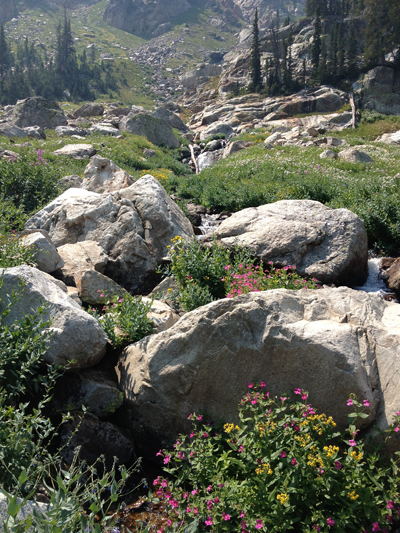
After much deliberation with myself about the proper direction in which I should procede with my new findings I decided to go to the source of much of what I had read -- namely, Friedrich A. Hayek. I quickly devoured the Denationalization of Money, Choice in Currency, and The Road to Freedom. Several other minor articles by a variety of different people made it clear that there do exist very real alternatives to our current monetary system. During this sporadic probe I also discovered William T. Still and the Monetary Reform Act endorsed by the recently departed Nobel Prize winning economist, Milton Friedman. This further inquiry has led to an idea for another paper that I have yet to complete, but hope to present at the WEAI Conference in Tōkyō in mid-March 2013. The paper will examine at least one feasible path away from the corrupt monetary system that dominates not only the United States, but nearly all, if not all of the Western world. Sound money, the elimination of wide-spread general price inflation and the now infamous boom-and-bust cycles of our contemporary national economy will solve many of our social ills very quickly and with little pain.
If I have any decision to regret during this past year, it was my neglect of internet technology in favor of Arabic studies. Looking back my time would have been more efficiently spent alone at home enhancing my knowledge of the UNIX operating system, PHP and Javascript than in a university classroom with Pakistanis who professed superior English and a Sudanese teacher who was more intent on teaching the Qurãn and learning Urdu and English than on teaching me Arabic. Though I can find many excuses for my failure to have quit sooner, I finally seized the opportunity when Mutaïr Al Mahliki invited me to his private school, Al Bayan, free of charge and provided me with a new instructor and classroom atmosphere more conducive to my still primitive, but once again ever advancing formation in Arabic language and culture.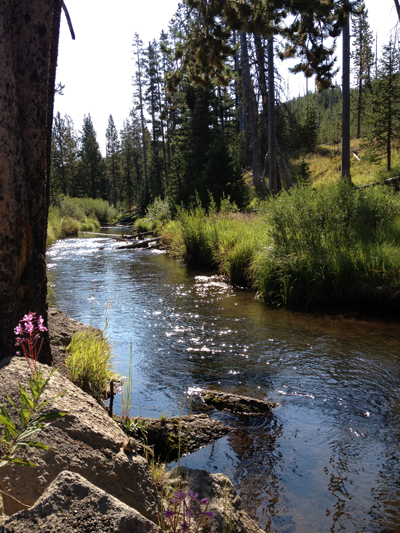
Alas, my classroom is still filled with Pakistanis, but my instructor is Syrian and knows a little French. Moreover, he appears to care more about teaching us Arabic than learning Urdu and English. And, if it were not for my Pakistani classmates, there would surely be less emphasis on the Qurãn, as well.
Indeed, I am slowly coming to the conclusion that the Muslim fascination with the divine Qurãn is akin to the Japanese fascination with kanji (Sino-Japanese characters). One would rather speak about something of which one is knowledgeable, than to appear ignorant about something of which one is not. Accordingly, while discussing the Qurãn one reinforces one's sense of collective awareness and feelings of collective security. Unfortunately, these latter benefits are only very beneficial to those who believe in Allah and take comfort in the Islamic faith.
In contrast, learning Unix, PHP, and Javascript only requires a dedication to applied logic that is largely indifferent to one's cultural upbringing and preferred set of social values. In all fairness, however, knowledge of the English language is essential to the acquistion of IT, and I have met few native English teachers overseas who do not bias their native culture in favor of the linguistic content of what they teach.
Sometime in mid-July, while I was making my first foray into the American wilderness on Mt. Rainier, Apple Computer pulled the plug on its longstanding webhosting service, and my personal webpage entitled Moogoonghwa simply disappeared. As I did not want to find a new home for it, I let it vanish. Slowly, but surely I am parting ways with Apple Computer, as I believe the internet should be a free and open forum for the exchange of ideas and the technology that permits them.
Finally, I am proud to announce that I have not only found my way back to the 3-meter platform and board at the university pool, but I have kept my first New Year's resolution and returned to the gym, as well. I still have not lost the 12 kilograms that I put on during the first half of 2012 despite the significant progress that I made while hiking through the American wilderness. This said, I am sure that I will achieve my goal soon, as almost no one likes to watch a fat diver!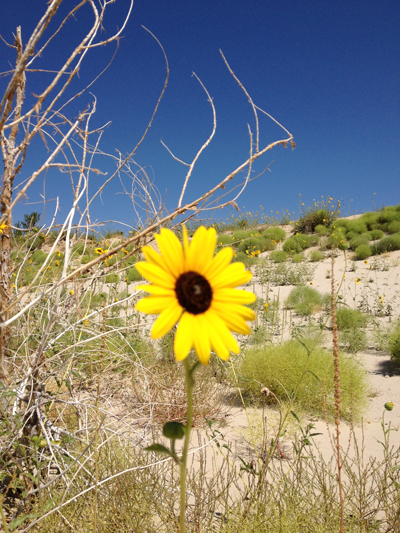
There is a second New Year's resolution of still greater importance that you can make together with me: it is never again to use the singular verb form when referring to the United States.
For example, we can say, The United States have lost their way", but we cannot say, "The United States has lost its way". We can say, "The United States are a great country", but we cannot say, "The United States is a great country". We can say, "The United States do not yet understand that they have abandoned their Constitution and become a world empire", but we cannot say, "The United States does not yet understand that it has abandonned its Constitution and become a world empire".
Now, if you could understand the above paragraph, then not only have you understood subject-verb agreement and person and number, but you have understood the power of grammar in determining the political will of the American people.
Happy New Year!
Roddy
Credits: The snake image was obtained from the internet, but I do not remember where. There are hundreds of similar images that you can easily obtain, if you like it. Just google "Don't tread on me", and click on Image. In addition, I would like to thank jQuery for the free Overlay technology and W3Schools for their useful advice with regard to webpage design and the employment of JavaScript.
Also, special thanks to David and Sandi Evans, Doug Ansell, and Ryan Dye for having made my journey across the US so very successful despite every misfortune.
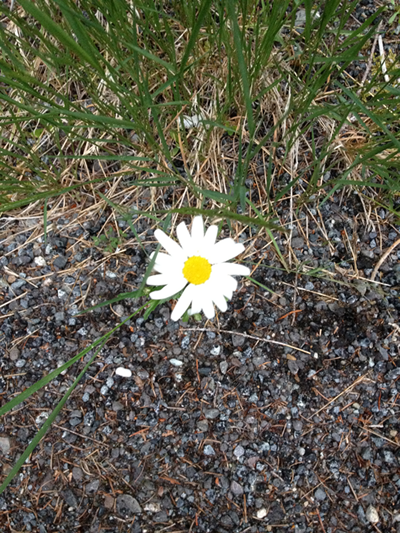
Close Window
Eagles Peak Trail
Mt. Rainier National Park, State of Washington, USA
It was a lonely, rustic, and humble beginning.
Fortunately, I met a couple from Hawaii who over the years had traveled most, if not all, of our nation's national parks. As a result, they were able to provide me with some great insight about what parks to visit and the overall direction of my travel.
They were also Ron Paul supporters, and this helped alot during their sometimes long, but useful recitation.
And, when it came time for my return to Seattle, they helped me get my jeep started.

Close Window
Deer Creek Trail
Umpqua National Forest, State of Oregon, USA
This is a wild orchid whose photo was taken along Deer Creek.
In order to reach the end of the trail one had to ford the creek. As the water was rapid and the rocky bottom treacherous, I obtained a stick, removed by hiking shoes, and crossed the water.
I was pleasantly rewarded with a much longer and scenic trail through the forest.
On my return journey I watched another hiker turn back, as he was reluctant to do the same as I.

Close Window
Discovery Point
Crater Lake National Park, State of Oregon, USA
No matter how magnificent was the landscape, one could not help but feel alone among the barren rock, the clear blue water, and the endless sky.
In time the unusually tiny wildflowers that decorated the often barren landscapes that I mounted gave reason for pause and contemplation.
Crater Lake is an exceptionally beautiful lake whose color remained throughout my journey the most beautiful that I had seen.

Close Window
Mt. Shasta
Shasta-Trinity National Forest, State of Oregon, USA
It was a long journey to Mt. Shasta from Oregon's Crater Lake, and I arrived in the Shasta-Trinity National Forest as the sun was setting.
I was frightened, as there were no camp facilities and no one around. Only the rustle of the wind through the pine and an occasional bird were all that I could hear.
So, I pitched my tent and waited until morning to cook a meal. I did not want to attract unwelcome visitors while I slept.

Close Window
Broken-Off Mountain
Lassen Volcanic National Park, State of California, USA
The trailhead to Broken-Off Mountain lies outside of the park, and the trail to the top of the mountain and back is quite long.
I met very few people along the way.
This said, It was surely one of the better hikes of my summer trek.
From the top of the mountain I could see the barren top of Mt. Lassen that I had also climbed. I would like to think that I was able to see Mt. Shasta in the distance, but I am not certain.

Close Window
Broken-Off Mountain
Lassen Volcanic National Park, State of California, USA
There is much to see along the trail to the top, and as always, the trail back down was more fun and just as interesting.
The water was crystal clear and very cool, and I filled my water bottle directly from a tiny rapids and little fall along the way.
When I returned to the trailhead, it was dusk.
By the time I returned to my campsite, it was nightfall, and I could hear the owls.

Close Window
Jackson Meadow Resevoir
Lake Tahoe National Forest, State of California, USA
Camping in the national forests is often free, but well-maintained campgrounds are seldom free, even when they are found in a national forest. I barely had enough money for gas.
Jackson Meadow Resevoir was my first campsite along the water. The morning swim with my neighbor who had found a diving rock on the previous day was very refreshing.
I encountered a brown bear along the Horsecamp Trail and took a video of it hollowing out a dead tree in search of insects.

Close Window
Harden Lake
Yosemite National Park, State of California, USA
Near the White Wolf camp site there are several trails. One of them goes to Harden Lake.
I had spent the previous night in my car, as I was unable to find a camp site that was both accessible and not fully occupied.
It was the only such mishap during my entire 41 days on the road.
Bright and early on the following morning I took the first vacancy, but would soon be disappointed by my suspicious neighbors.
Travelling alone comes with an aura of mystery that some people find difficult to comprehend.

Close Window
Upper Falls
Yosemite National Park, State of California, USA
The Upper Falls are a challenging hike and offer breathtaking views much of the way up.
Although the trail is well-marked, I descended by moonlight without a headlamp.
Once in the forest, however, it was touch and go, and I was very happy to have reached the bottom without a bruise or scratch.
Although there was no water in the falls, the pools at the top provided for a refreshing swim. I was the last to arrive, so I bathed in the nude.

Close Window
Mt. Alta
Sequoia National Park, State of California, USA
Climb to the top of Mt. Alta, and you will not be sorry. From there you can see Mt. Whitmore, the highest peak in the continental United States.
Like most long trails in US national parks you will encounter few other hikers and be able to enjoy most of your time alone with nature.
The wilderness speaks to you about life in a way that no city or farm ever could. For, it is simply there to enjoy and appreciate.
Its only demands are that you never surrender and do not stay forever.

Close Window
The Giant Forest
Sequoia National Park, State of California, USA
Probably the most popular reason for visiting this park is to see the Giant Forest and the General Sherman tree.
The park service claims that it is the largest tree in the world.
Like the giant redwood, the sequoia tree lives to a very old age and can therefore grow to a very large size.
Certainly the park rangers had fun naming the various groves and individual sequoia
Were I among them, I surely would have named one of the trees after Ron Paul.

Close Window
Clover Creek
Sequoia National Park, State of California, USA
Some of the parks that I visited I was eager to leave; Sequoia National Park was not one of them.
On my way out I stumbled upon Clover Creek and paused for many long minutes.
I had only to abandon my vehicle and descend a little traveled path, and soon I was hidden from the traffic.
The only sound I could here was that of a babbling brook. The sunlight sparkled through the foliage above.

Close Window
Along the Road to Death Valley
Ridgecrest, California, USA
On occasion I abandonded the great out-of-doors and took refuge in a motel.
It was a very long way from the Giant Forest to Death Valley, and I was exhausted, uncertain about where I would be spending the night, and had a backlog of photos and unattended journal entries.
In addition, I did not have a map of the region and the name Death Valley frightened me.
So, rather than proceding I turned back and paused for the night in Ridgecrest.

Close Window
La Madre Trail
Red Rock Canyon Recreational Area, Nevada, USA
I did not always camp where I hiked, and Red Rock Canyon was one of the few exceptions.
I had an appointment with Doug Ansell, a Facebook acquaintance, in Las Vegas in the early evening, and was looking for a useful way to spend the afternoon.
So, I got a close-up view of the canyon's red rock and surrounding terrain.
I was on a constant look-out for rattlesnakes, but I did not encounter any. Even the turtles had sought refuge from the baking sun.

Close Window
Wynn-Encore Hotel and Resort
Red Rock Canyon Recreational Area, Nevada, USA
Las Vegas is much more than a place to gamble. In particular, I was struck by the architectural fantasy that decorates the entire Las Vegas Strip.
So, I pretended that I was in the Giant Forest and sought to capture the unique character of each monumental structure.
I now have a photo collection of the Eifel Tower, the Empire State Building, Disneyland's Sleeping Beauty Castle, the Great Pyramid, and so much more.
Indeed, Las Vegas is a city of replica and affectation.
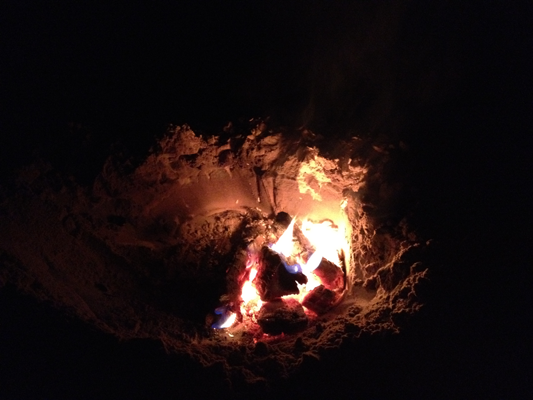
Close Window
Final Campfire
Arthur Bay, Lake McConaughy, State of Nebraska, USA

Close Window
Angels Landing
Zion National Park, State of Utah, USA
When I asked a lad where he had gone the previous day, he said Angels Landing.
When I asked him whether he could recommend my going there, he replied that he could.
When I asked him why, he said that you could see our campgrounds from the top.
To this day I do not understand the lad's response, because Angels Landing is much more than a high place from which you can see everything.
It is a hiker's challenge that requires both hands and feet to reach. Maybe the lad was thankful that he was able to have made it back.

Close Window
West Rim Trail
Zion National Park, State of Utah, USA
Zion National Park is a very beautiful park, but you have to hike a very long distance before you can find a dirt path.
The bus system is likely an improvement over the vehicle traffic jams of Yellowstone National Park, but it would be difficult for me to recommend this park to anyone, but a family looking for controlled adventure and natural wonder.
Surely, there is something for everyone and little chance of getting lost.

Close Window
Observation Point Trail
Zion National Park, State of Utah, USA
It is a long, arduous trail with many steep, unprotected drop-offs and a somewhat uninspiring climax.
For, one has seen just about everything there is to see before arriving at the heralded observation point.
One time, I simply had to do everything that I could to stop myself from jumping. Never before had I been exposed so relentlessly to what sometimes seemed unending peril. And, all I was doing was hiking.
Fortunately I resisted and am able to tell about it.

Close Window
Cascade Canyon Trail
Grand Teton National Park, State of Wyoming, USA
Unlike the dryer regions of Central California, Nevada, and Utah the Grand Teton were abundant in flora and fauna of all shapes, types, and color.
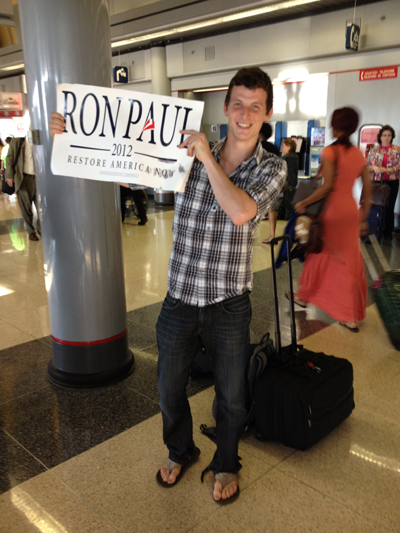
Close Window
Kyle Pierce
Ohare International Airport, Chicago, State of Illinois, USA

Close Window
Cascade Canyon Trail
Grand Teton National Park, State of Wyoming, USA
Where the Cascade Canyon and Paintbrush Trails meet is Lake Solitude. On the lake's edge were large bits and pieces of glacial ice.
It is into this very clean and very cold water that I took a dip before my return journey to Jenny Lake, the boat landing, and the ferry back to the parking lot.
When I arrived at the lake I could see the last ferry of the day approaching.
So, I scurried down the rock and made it just before the boat parted.

Close Window
Cascade Canyon Trail
Grand Teton National Park, State of Wyoming, USA
I spent only two nights at the Grand Teton and one very long, glorious day along the Cascade Canyon Trail.
My 2012 Liberty Trek was rapidly coming to an end, and there was still much to see and very far to travel.
Everyone has heard of Yellowstone, and I wanted to see what it was all about.
I now know better, but there was no going back to the Grand Teton, as time would not permit.

Close Window
Cascade Canyon Trail
Grand Teton National Park, State of Wyoming, USA
My preferred hike was a long, arduous upward trek, with a surprise ending, and easy descent.
The Cascade Canyon Trail was long and up, but never really arduous.
Rather, it was a colorful, delightful journey through a sometimes narrow, sometimes broad valley with many natural surprises.
I was most deeply impressed by the vast mountain slopes covered with wild flora.

Close Window
Cascade Canyon Trail
Grand Teton National Park, State of Wyoming, USA

Close Window
Cascade Canyon Trail
Grand Teton National Park, State of Wyoming, USA

Close Window
Virginia Cascade
Yellowstone National Park, State of Wyoming, USA
Though hardly my last place to camp, Yellowstone National Park marked the northern most campsite that I reached before once again turning east and south.
Yellowstone was also the last national park to host the 2012 Liberty Trek.
Like most attractions in Yellowstone the Virginia Cascade is easy to reach with your vehicle.
Yellowstone is a high altitude plateau with a caldera and above-ground volcanic activity.
Old Faithful is its most prominent volcanic feature, but this series of photos is about flora.

Close Window
Arthur Beach
Lake McConaughy State Recreational Area, Ogallala, Nebraska, USA
Lake McConaughy marked my last overland campground before boarding a plane to Tampa.
When I started my journey I had only the tan that I had acquired in Saudi Arabia where I spend most of my life indoors.
By the time I completed the 2012 Liberty Trek I was so dark that I could not recognize myself.
One day I placed my hand on a map to show someone the way, and quickly withdrew it, as if it had belonged to someone else.
So dark had I become.